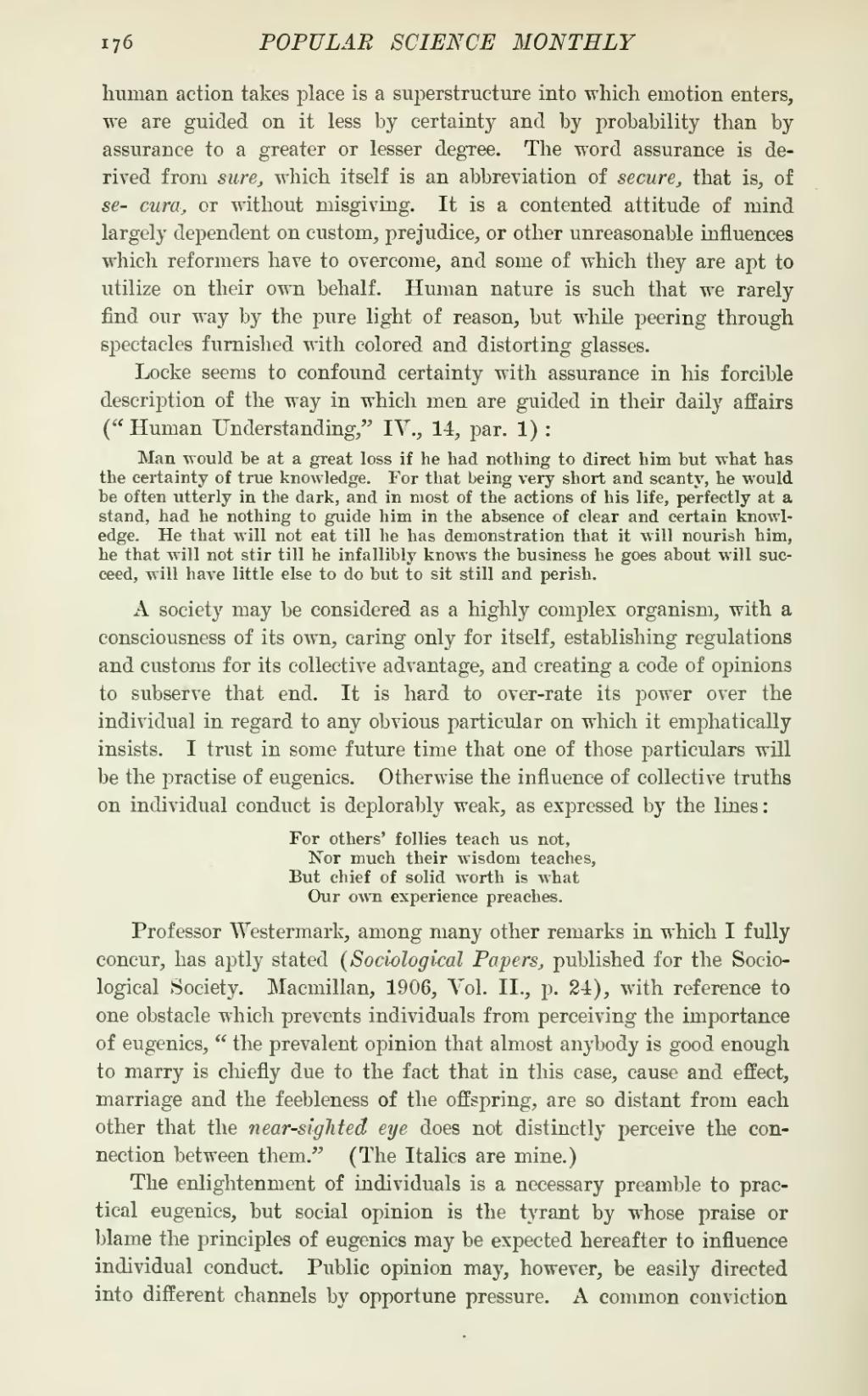human action takes place is a superstructure into which emotion enters, we are guided on it less by certainty and by probability than by assurance to a greater or lesser degree. The word assurance is derived from sure, which itself is an abbreviation of secure, that is, of se-cura, or without misgiving. It is a contented attitude of mind largely dependent on custom, prejudice, or other unreasonable influences which reformers have to overcome, and some of which they are apt to utilize on their own behalf. Human nature is such that we rarely find our way by the pure light of reason, but while peering through spectacles furnished with colored and distorting glasses.
Locke seems to confound certainty with assurance in his forcible description of the way in which men are guided in their daily affairs ("Human Understanding," IV., 14, par. 1):
A society may be considered as a highly complex organism, with a consciousness of its own, caring only for itself, establishing regulations and customs for its collective advantage, and creating a code of opinions to subserve that end. It is hard to over-rate its power over the individual in regard to any obvious particular on which it emphatically insists. I trust in some future time that one of those particulars will be the practise of eugenics. Otherwise the influence of collective truths on individual conduct is deplorably weak, as expressed by the lines:
For others' follies teach us not,
Nor much their wisdom teaches,
But chief of solid worth is what
Our own experience preaches.
Professor Westermark, among many other remarks in which I fully concur, has aptly stated (Sociological Papers, published for the Sociological Society. Macmillan, 1906, Vol. II., p. 24), with reference to one obstacle which prevents individuals from perceiving the importance of eugenics, "the prevalent opinion that almost anybody is good enough to marry is chiefly due to the fact that in this case, cause and effect, marriage and the feebleness of the offspring, are so distant from each other that the near-sighted eye does not distinctly perceive the connection between them." (The Italics are mine.)
The enlightenment of individuals is a necessary preamble to practical eugenics, but social opinion is the tyrant by whose praise or blame the principles of eugenics may be expected hereafter to influence individual conduct. Public opinion may, however, be easily directed into different channels by opportune pressure. A common conviction
